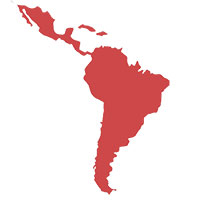Fossil of the Day: the US and Japan Share Dubious Honours
Sofía Szmirnov | December 11, 2014.
The US and Japan share a common medical condition: short-sightedness. And it was this mutual myopia that led to them share the honours of being equal-first at the daily Fossil awards.
Attempting to remove adaptation and loss and damage from ADP decision text, was a less-than-smart call on their behalf. These two critical components can’t be overlooked going forward into signing a final agreement in 2015. Both countries seem to be suffering from long-term memory loss and operating with an “out of sight, out of mind” mentality. Having witnessed the extent of damage possible from climate change-induced natural disasters on their own doorsteps, the US and Japan would know better than to ignore what’s necessary.
Turning a blind eye to the global call to phase out fossil fuels and phase in renewable energies, earned Poland second place. Poland, despite the criticism it received as COP hosts last year, still prefers fossil fuels and has recently proposed new coal projects as part of a European Union stimulus package.
Third place went to Venezuela after their foreign affairs minister claimed that climate change is a result of “irrational use of petrol”. This is despite the overwhelming scientific evidence to the contrary, proving that even when “used rationally”, petrol remains a big contributor to climate change.
Showing that it is possible to be sensible about climate change; Germany, Peru and Colombia take out the ‘Ray of the Day’, a rarely awarded prize for countries that have gone above and beyond. Shining over their irrational and short-sighted counterparts, the three countries pledged funds to the Green Climate Fund.
Germany led the pack with a US$60 million pledge (on top of the $1 billion it has already committed), followed by Peru and Colombia both pledging $6 million each. The pledges add pressure for more countries to contribute, particularly developing ones, as commitments plateau barely one tenth of the way to the $100 billion target.













comment